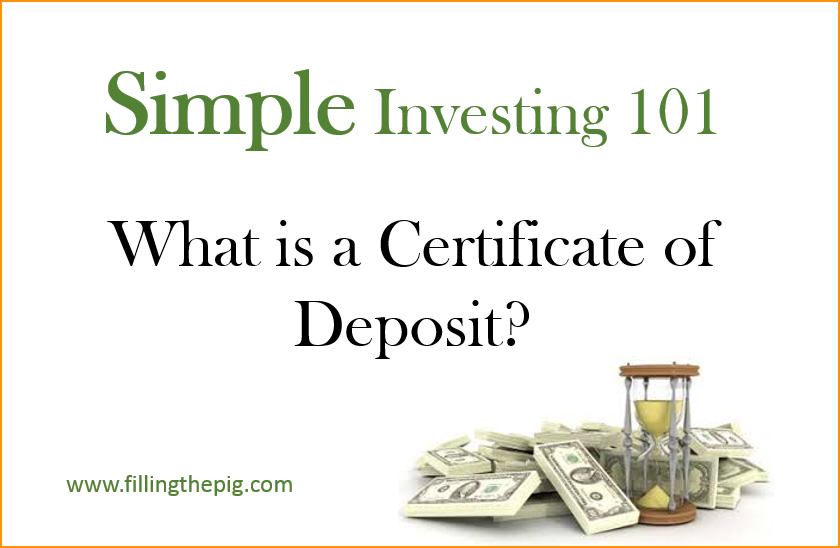Certificates of Deposit or CD’s are offered by most financial institutions (banks, credit unions…) as a product to provide you with interest rates that are generally higher than a traditional savings account. Unlike a savings account where you can move money in and out of the account, CD’s will require you to commit to a term length for the time your money is allocated to a CD. Here are the key points regarding Certificates of Deposit.
The Key Points Regarding CDs
- Your financial institution pays you an interest rate based on how much money you commit to a CD and the term length. Typically the more money you put into a CD and the longer the term, the higher the interest rate. The interest rate is reflected as APR – Annual Percentage Rate. In addition, the financial institution will also provide you with the Annual Percentage Yield or APY. The APY is generally higher than the APR and reflects the compounding effect of the interest you earn. The more times your money is compounded the higher the APY.
- Allocating your money to a CD will require some term length commitment. The more common term commitments are six months, one year, three years and five years. The end of the term commitment is generally called the maturity date.
- Normally requires a minimum amount to invest – it may be as little as $100 or as much as $250,000.
- Once you commit to a term length, there are typically penalties for early withdrawal.
- Interest rates can be fixed or variable; check with your bank on the various options.
- CD’s are typically considered low-risk investment options. Once you commit you’re almost always guaranteed the interest rate and return on the CD.
- Auto-renewal – make sure you understand your institution’s policies on auto-renewal of the CD. Most banks and credit unions will notify you (by mail/email) in advance when your CD is about to reach maturity – asking you if you want to renew the CD for the previous term length. If you don’t respond, your CD will auto-renew for the previous term length. This is a problem if you had planned on using those funds for a pending purchase.
Are CDs a Good Long-Term Investment?
In the world of personal finance and specifically on the subject of retirement they are typically not viewed as a long term retirement vehicle. That’s because they earn a relatively low-interest rate. However, investing is a process, and if you have cash sitting in your savings account, CDs provide an opportunity to earn a bit more interest. CDs come in numerous flavors depending on the financial institution you’re working with. Check with your bank on the options they provide.
Related Posts:
- Be Careful – Do You Understand Your CDs Auto Renew Policy?
- Simple Investing – The Effect of Compounding Interest or Rate of Return
- Rule of 72 – Rate of Return and Double Your Money
- How to Open a Brokerage Account Online, In 4 Simple Steps
- How to Track Stocks and Mutual Funds using Yahoo Finance (Video)
When Are They a Good Investment Option?
If you’re saving up to purchase a home or maybe a new vehicle, a Certificate of Deposit may be a good option to temporarily earn more interest rather than leaving that money in a savings account. If your purchase is a year or maybe two years out, find a CD that meets your time frame in respect to your purchase. Remember, don’t commit your money to a CD if you are going to need those funds prior to the maturity date, or you will be penalized for early withdrawal.
If you haven’t already, be sure to sign-up for my free email course 3 Steps to Start Investing. It will teach you how to start investing in one week.
Recommended Resources:
- Investment Calculator
- Personal Capital – All Your Financial Tools in One Place
- Motley Fool – Stock Advisor
- Wealthsimple – Socially Responsible Automated Investing $0 Account Minimum
Have you leveraged a CD as an investment vehicle? Comment below.
Sign up for a KindleUnlimited Free 30 Day Trial and read the complete Filling The Pig finance series of books for free.


